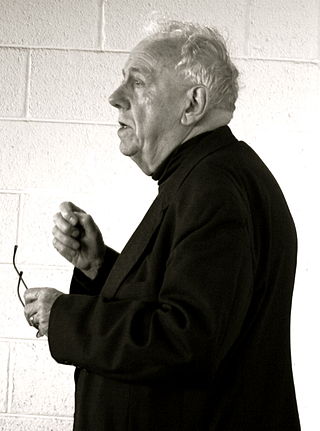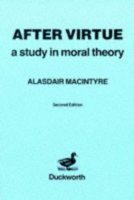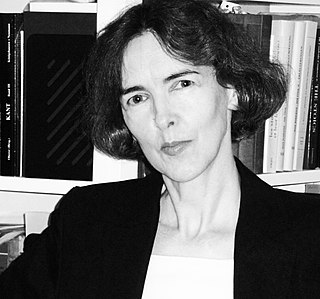
David Hume was a Scottish philosopher, historian, economist, and essayist who was best known for his highly influential system of empiricism, philosophical scepticism and metaphysical naturalism. Beginning with A Treatise of Human Nature (1739–40), Hume strove to create a naturalistic science of man that examined the psychological basis of human nature. Hume followed John Locke in rejecting the existence of innate ideas, concluding that all human knowledge derives solely from experience. This places him with Francis Bacon, Thomas Hobbes, John Locke, and George Berkeley as an empiricist.

In philosophy, empiricism is an epistemological view which holds that true knowledge or justification comes only or primarily from sensory experience and empirical evidence. It is one of several competing views within epistemology, along with rationalism and skepticism. Empiricists argue that empiricism is a more reliable method of finding the truth than purely using logical reasoning, because humans have cognitive biases and limitations which lead to errors of judgement. Empiricism emphasizes the central role of empirical evidence in the formation of ideas, rather than innate ideas or traditions. Empiricists may argue that traditions arise due to relations of previous sensory experiences.
Reason is the capacity of consciously applying logic by drawing valid conclusions from new or existing information, with the aim of seeking the truth. It is associated with such characteristically human activities as philosophy, religion, science, language, mathematics, and art, and is normally considered to be a distinguishing ability possessed by humans. Reason is sometimes referred to as rationality.

The problem of induction is a philosophical problem that questions the rationality of predictions about unobserved things based on previous observations. These inferences from the observed to the unobserved are known as "inductive inferences". David Hume, who first formulated the problem in 1739, argued that there is no non-circular way to justify inductive inferences, while acknowledging that everyone does and must make such inferences.

Rosalind Hursthouse is a British-born New Zealand moral philosopher noted for her work on virtue ethics. She is one of the leading exponents of contemporary virtue ethics, though she has also written extensively on philosophy of action, history of philosophy, moral psychology, and biomedical ethics. Hursthouse is Professor Emerita of Philosophy at the University of Auckland and Fellow of the Royal Society of New Zealand.

Aristotelianism is a philosophical tradition inspired by the work of Aristotle, usually characterized by deductive logic and an analytic inductive method in the study of natural philosophy and metaphysics. It covers the treatment of the social sciences under a system of natural law. It answers why-questions by a scheme of four causes, including purpose or teleology, and emphasizes virtue ethics. Aristotle and his school wrote tractates on physics, biology, metaphysics, logic, ethics, aesthetics, poetry, theatre, music, rhetoric, psychology, linguistics, economics, politics, and government. Any school of thought that takes one of Aristotle's distinctive positions as its starting point can be considered "Aristotelian" in the widest sense. This means that different Aristotelian theories may not have much in common as far as their actual content is concerned besides their shared reference to Aristotle.

The is–ought problem, as articulated by the Scottish philosopher and historian David Hume, arises when one makes claims about what ought to be that are based solely on statements about what is. Hume found that there seems to be a significant difference between descriptive statements and prescriptive statements, and that it is not obvious how one can coherently transition from descriptive statements to prescriptive ones.
Inductive reasoning is any of various methods of reasoning in which broad generalizations or principles are derived from a body of observations. This article is concerned with the inductive reasoning other than deductive reasoning, where the conclusion of a deductive argument is certain given the premises are correct; in contrast, the truth of the conclusion of an inductive argument is at best probable, based upon the evidence given.

The Organon is the standard collection of Aristotle's six works on logical analysis and dialectic. The name Organon was given by Aristotle's followers, the Peripatetics, who maintained against the Stoics that Logic was "an instrument" of Philosophy.

Alasdair Chalmers MacIntyre is a Scottish-American philosopher who has contributed to moral and political philosophy as well as history of philosophy and theology. MacIntyre's After Virtue (1981) is one of the most important works of Anglophone moral and political philosophy in the 20th century. He is senior research fellow at the Centre for Contemporary Aristotelian Studies in Ethics and Politics (CASEP) at London Metropolitan University, emeritus Professor of Philosophy at the University of Notre Dame, and permanent senior distinguished research fellow at the Notre Dame Center for Ethics and Culture. During his lengthy academic career, he also taught at Brandeis University, Duke University, Vanderbilt University, and Boston University.
Inductionism is the scientific philosophy where laws are "induced" from sets of data. As an example, one might measure the strength of electrical forces at varying distances from charges and induce the inverse square law of electrostatics. This concept is considered one of the two pillars of the old view of the philosophy of science, together with verifiability. An application of inductionism can show how experimental evidence can confirm or inductively justify the belief in generalization and the laws of nature.
Early Islamic law placed importance on formulating standards of argument, which gave rise to a "novel approach to logic" in Kalam . However, with the rise of the Mu'tazili philosophers, who highly valued Aristotle's Organon, this approach was displaced by the older ideas from Hellenistic philosophy. The works of al-Farabi, Avicenna, al-Ghazali and other Muslim logicians who often criticized and corrected Aristotelian logic and introduced their own forms of logic, also played a central role in the subsequent development of European logic during the Renaissance.

John Mitchell Finnis is an Australian legal philosopher and jurist specializing in jurisprudence and the philosophy of law. He is an original interpreter of Aristotle and Aquinas, and counts Germain Grisez as a major influence and collaborator. He has made contributions to epistemology, metaphysics, and moral philosophy.

After Virtue: A Study in Moral Theory is a book on moral philosophy by the Scottish philosopher Alasdair MacIntyre. MacIntyre provides a bleak view of the state of modern moral discourse, regarding it as failing to be rational, and failing to admit to being irrational. He claims that older forms of moral discourse were in better shape, particularly singling out Aristotle's moral philosophy as an exemplar. After Virtue is among the most important texts in the recent revival of virtue ethics.
The history of scientific method considers changes in the methodology of scientific inquiry, as distinct from the history of science itself. The development of rules for scientific reasoning has not been straightforward; scientific method has been the subject of intense and recurring debate throughout the history of science, and eminent natural philosophers and scientists have argued for the primacy of one or another approach to establishing scientific knowledge.
Inductivism is the traditional and still commonplace philosophy of scientific method to develop scientific theories. Inductivism aims to neutrally observe a domain, infer laws from examined cases—hence, inductive reasoning—and thus objectively discover the sole naturally true theory of the observed.
Common sense is "knowledge, judgement, and taste which is more or less universal and which is held more or less without reflection or argument". As such, it is often considered to represent the basic level of sound practical judgement or knowledge of basic facts that any adult human being ought to possess. It is "common" in the sense of being shared by nearly all people. The everyday understanding of common sense is ultimately derived from historical philosophical discussions. Relevant terms from other languages used in such discussions include Latin sensus communis, Ancient Greek κοινὴ αἴσθησις, and French bon sens. However, these are not straightforward translations in all contexts, and in English different shades of meaning have developed. In philosophical and scientific contexts, since the Age of Enlightenment the term "common sense" has been used for rhetorical effect both approvingly and disapprovingly. On the one hand it has been a standard for good taste, good sense, and source of scientific and logical axioms. On the other hand it has been equated to conventional wisdom, vulgar prejudice, and superstition.

British philosophy refers to the philosophical tradition of the British people. "The native characteristics of British philosophy are these: common sense, dislike of complication, a strong preference for the concrete over the abstract and a certain awkward honesty of method in which an occasional pearl of poetry is embedded".

Susanne Bobzien is a German-born philosopher whose research interests focus on philosophy of logic and language, determinism and freedom, and ancient philosophy. She currently is senior research fellow at All Souls College, Oxford and professor of philosophy at the University of Oxford.

Logic is the study of correct reasoning. It includes both formal and informal logic. Formal logic is the study of deductively valid inferences or logical truths. It examines how conclusions follow from premises based on the structure of arguments alone, independent of their topic and content. Informal logic is associated with informal fallacies, critical thinking, and argumentation theory. Informal logic examines arguments expressed in natural language whereas formal logic uses formal language. When used as a countable noun, the term "a logic" refers to a specific logical formal system that articulates a proof system. Logic plays a central role in many fields, such as philosophy, mathematics, computer science, and linguistics.











